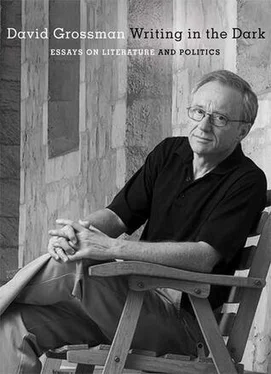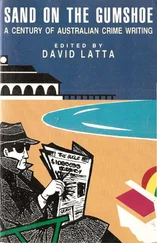There was a war. Israel flexed its huge military muscle, revealing nothing but its powerlessness and fragility. We discovered that, ultimately, our military might alone cannot ensure our existence. Moreover, we discovered that Israel is in a profound crisis, far more profound than we had imagined, in almost every aspect of its being.
I am speaking to you this evening as someone whose love for this country is difficult and complicated, but nonetheless unequivocal. And as someone whose long-standing covenant with the country has become, tragically, a covenant of blood. I am a wholly secular man, yet to me the establishment and the very existence of the State of Israel are a sort of miracle that we as a people have experienced — a political, national, human miracle. I do not forget this even for a moment. Even when many things in the reality of our lives outrage and depress me, even as the miracle is broken down into tiny units of routine and misery, of corruption and cynicism, even when reality seems like a bad parody of the miracle, I always remember. And it is from this feeling that I speak to you tonight.
“Behold, earth, for we have been very wasteful,” wrote the poet Shaul Tchernichovsky in 1938. He was lamenting the fact that in the earth of Israel, time after time, we bury young people in the prime of their lives.
The death of a young person is a terrible, shattering waste. But no less terrible is the sense that for many years the State of Israel has been criminally wasting not only the lives of its children, but also the miracle it experienced — the great and rare chance bestowed upon it by history, the chance to create an enlightened, decent, democratic state that would conduct itself according to Jewish and universal values. A state that would be a national home and a refuge, but not only a refuge: rather, a place that would also give new meaning to Jewish existence. An essential part of the Jewish identity of this state, of its Jewish ethos, was to be a thoroughly egalitarian and respectful attitude toward its non-Jewish citizens.
And look what has happened.
Look what has happened to the young, daring, enthusiastic, and soulful country that used to be here. See how, through some accelerated aging process, Israel has leaped from infancy, through childhood and adolescence, to a permanent state of discontent, weakness, and missed opportunities. How did this happen? When did we lose even the hope that we could ever live a different life, a better life? Moreover, how can we continue to stand by and watch, as if hypnotized, as our home is taken over by madness and coarseness, violence and racism?
And how, I ask you, is it possible that a nation with our powers of creativity and renewal, a nation that has managed to resurrect itself from the ashes time after time, finds itself today — precisely when it has such huge military power — flaccid and helpless? A victim once again — but this time, a victim of itself, of its own anxieties and despair, of its own nearsightedness?
One of the harshest outcomes of the recent war is our heightened sense that there is no king in Israel. That our leadership is hollow. Both the political and the military leadership. I am not speaking of the obvious failures in the way the war was conducted, nor of the neglect of the home front. Nor of the corruption, small and large. I am speaking of the fact that the people who are leading Israel today are incapable of connecting Israelis with their identity — certainly not a healthy, animating, nurturing identity, one comprising the foundations, the memories, and the values that could give Israelis strength and hope. Such an identity would be an antidote to the waning of mutual responsibility and attachment to the country; it would give meaning to the exhausting and dispiriting struggle for existence.
The main substances with which Israeli leadership fills the shell of its rule today are primarily those of fear, on the one hand, and intimidation, on the other. The enchantment of power, the wink of the quick fix. Wheeling and dealing in all we hold dear. In this respect, they are not true leaders, and they cannot help a nation adrift in such a complicated state of affairs. Sometimes it seems as though the echoes of our leaders’ thoughts, of their historical memory, of their vision, of the things they truly care about, exist solely in the tiny space between two newspaper headlines. Or between two investigations by the attorney general.
Look at the people who are leading us. Not all of them, of course, but too many of them. Look at the scared, suspicious, sweaty ways they behave, at their prosecutorial, deceptive conduct. It is ridiculous even to hope that they might be the source of any inspiration, any vision, even so much as an original idea, something truly creative, daring, imaginative. When was the last time the prime minister conceived or implemented a move that had the power to open a single new horizon for Israelis? A better future? When did he initiate a social, cultural, or moral measure, rather than frenetically react to the measures imposed on him by others?
Mr. Prime Minister, I am not saying these things out of anger or vengefulness. I have waited long enough so that I would not be responding out of any fleeting impulse. You cannot dismiss my words tonight by saying that a man should not be judged at his time of grief. Of course I am in grief. But more than anger, what I feel is pain. I am pained by this country, and by what you and your friends are doing to it. Believe me, your success is important to me, because the future of us all depends on your ability to stand up and do something.
Yitzhak Rabin turned to the path of peace with the Palestinians not because he felt any great affection for them or their leader. Then too, as we recall, the general opinion was that we had no partner among the Palestinians, and that there was nothing to talk about. Rabin decided to do something because he observed, wisely, that Israeli society could not continue to exist for very long in a state of unresolved conflict. He understood before many others did that life in a constant climate of violence, occupation, terror, anxiety, and hopelessness was taking a toll that Israel could not withstand. These things are still true today, even more sharply so. In a moment we shall talk about the partner we do or do not have. First, let us look at ourselves.
For more than a century we have been living in strife. We, the citizens of this conflict, were born into war, schooled in it, and in some ways programmed for it. Perhaps this is why we sometimes think that this madness in which we have been living for over a hundred years is the real thing, the only thing, the only life we were meant to live, and that we do not have the option, or even the right , to aspire to another life: we shall live by the sword and we shall die by the sword, and the sword shall devour forever.
Perhaps this explains the indifference with which we accept the total failure of the peace process, a failure that has been going on for years, demanding more and more victims. This may also explain the general lack of response to the heavy blow against democracy dealt by the appointment of Avigdor Lieberman as a senior minister — the appointment of a known pyromaniac to run the national fire brigade. These are also some of the factors that have contributed to Israel’s remarkably rapid decline into coldness and real cruelty toward the weak, the poor, and the suffering. An indifference to the fate of the hungry, the elderly, the sick, and the handicapped; a national apathy toward the trade in women, for instance, or the exploitation and slave conditions of foreign workers; a deep-seated, institutionalized racism toward the Arab minority. When all these can occur here so naturally, arousing neither shock nor protest, I begin to fear that even if peace comes tomorrow, even if we ever return to some sort of normality, it may already be too late for a full recovery.
Читать дальше












